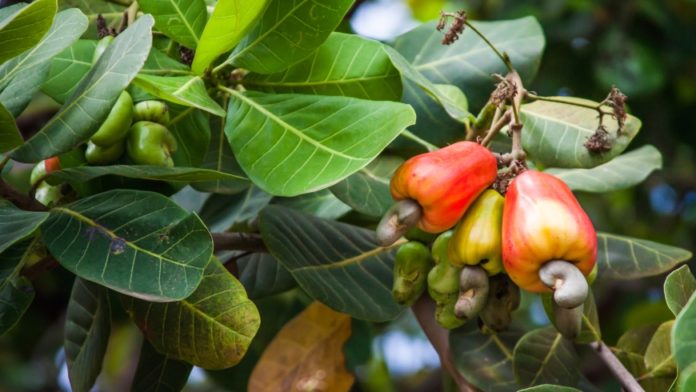The Ghana Exports Promotion Authority (GEPA), through its flagship project the National Export Development Strategy (NEDS), has outlined plans to boost cashew exports by as much as 320 percent from its current earnings to the country.
Currently, the crop is the second-largest contributor to non-traditional exports with earnings of US$237.8million in 2019. But through the NEDS project, GEPA seeks to increase the amount to more than US$1billion by 2029.
Some of the strategic interventions that GEPA plans to implement in the cashew industry to boost production and increase revenue include developing and supplying high-yielding disease-resistant grafted planting materials; establishing scion banks in major cashew growing areas, and liaising with private nursery operators to produce grafted planting materials.
Other strategies contained in the NEDS for the industry are: undertaking mass spraying of cashew farms to control pests and diseases; capacity building and training programmes on cashew farm best practices; and instituting land reforms that reduce bureaucracy and streamline access to land.
The cashew industry has over the years faced many challenges that have affected the growth of the sector. Some of the challenges include low production of Raw Cashew Nuts (RCN); poor post-harvest handling practices; high cost of transport and energy; and the high cost of plant protection which makes farms prone to diseases and pests.
Other challenges include a bureaucratic land tenure system that has been a limiting factor to plantation development; inadequate access to finance; a small domestic market; and the struggle for local processors to mechanize and expand.
The Association of Cashew Processors Ghana (ACPG) has constantly called on the government to quicken the pace of setting up the Tree Crop Development Authority to deal with the many challenges within the cashew industry. According to the association, challenges such as an unfair Raw Cashew Nut (RCN) market, poor storage, lack of appropriate finance, and improper relationships among some stakeholders within the industry can be dealt with by the Authority.
Data from the association show that there are more than 12 large and small-scale processing companies in the country, with over 27,000mt installed processing capacity. With the coming on board of Brazil’s largest processor, Usibras, with its 35,000mt plant, the total processing capacity is now more than 60,000mt.
Data from GEPA also indicate that Ghana exports an average of 150,000mt of RCN annually. The NEDS envisions that by 2029 the country will reach annual local cashew harvests of at least 500,000 metric tonnes – enough to satisfy the raw material needs of local processors. Cashew processing is a source of employment to thousands of farmers, with over 65 percent being women; and about 200 jobs are generated per 1,000 tonnes of cashew.
GEPA is set to invest over US$600million during the next ten years, in a bid to diversify the economy through Non-Traditional Exports (NTEs).
The NEDS has developed around three main strategic pillars – which seek to expand and diversify the supply base for value-added industrial export products and services; improve the business, regulatory environment for export; and build and expand the required human capital for industrial export development and marketing.
Source: thebftonline.com








